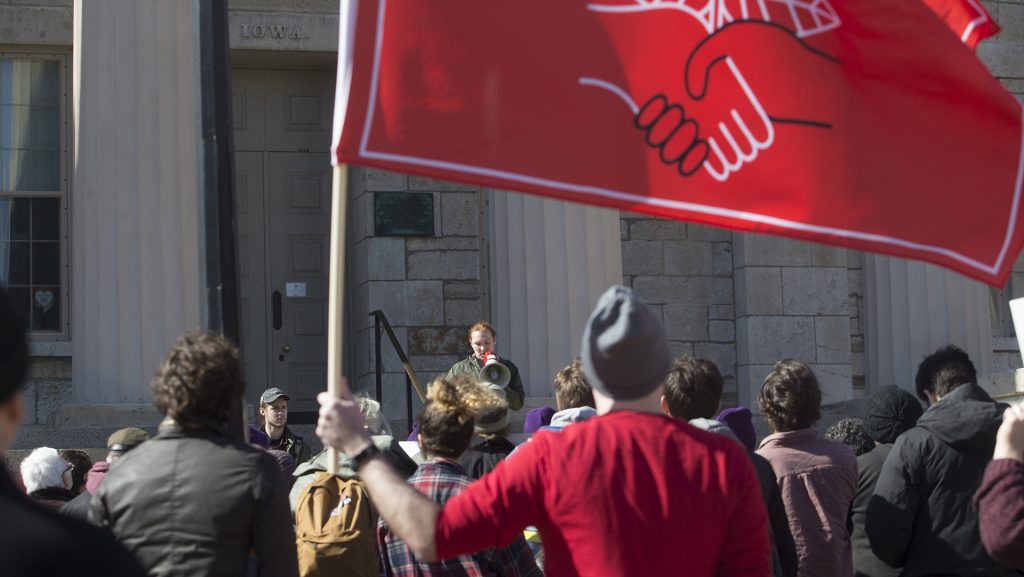Around 50 members of the labor advocacy group Faculty Forward and their supporters rallied on the Pentacrest on Monday in support of unionizing nontenure-track faculty.
The “We Rise Rally for Workers’ Rights” was part of a national day of action organized by pro-union groups in response to the U.S. Supreme Court case Janus v. AFSCME. The case, which the court heard on Monday, could strip public-sector unions of the ability to exact membership dues from nonmembers.
“This case is part of a broader effort to weaken the bargaining power of working people,” said English Professor Loren Glass, a tenured faculty member at the event.
Megan Knight, a UI associate professor of rhetoric and a speaker at the rally, said the case could be “disastrous” for unions in the public sector.
“I’m involved with because I’ve worked for Iowa for 20 years, I’ve been in the Rhetoric Department since 1998, but my salary has remained flat since then,” Knight said.
Knight said nontenure-track faculty, also called contingent faculty, have little power in the university despite forming “more than half” of faculty overall.
“We are tired of being the engines of our department and maybe being paid half what of what our tenured colleagues are paid,” she said.
Brooke Larson, a visiting assistant professor of linguistics, said she agrees.
“A lot of people, when they think of who is teaching college courses, they think of tenured faculty with good salaries, good health care,” she said. “But a lot of the courses are actually taught by nontenured faculty who don’t have these things.”
Larson said she hopes the rally will make students more aware of the effect that instructors’ working conditions can have on their education.
“We are organizing because being in this situation hurts our ability to teach,” she said. “It’s very hard to teach a course well when you’re not taken seriously or not respected in your position.”
Kelly Keegan, a lecturer of English as a Second Language and a member of Faculty Forward, said contingent faculty face an “unfair” lack of job security compared with their tenured peers. She will lose her job in May despite previously being told that her position was safe.
“In our department, there’s been a loss of enrollment, so we’ve been losing jobs,” she said. “We went through a rehiring process and were told that our jobs were safe, but some of us received three-year contracts or one-year contracts, which was really just a way to cut our jobs. I feel that was a problem with lack of transparency.”
Keegan hopes the rally will make the university realize that nontenure-track faculty “want change on campus.”
“I hope it opens some doors for discussion with the administration,” she said.
Landon Elkind, the president of the university’s graduate student union, COGS, agreed on the need for discussion.



